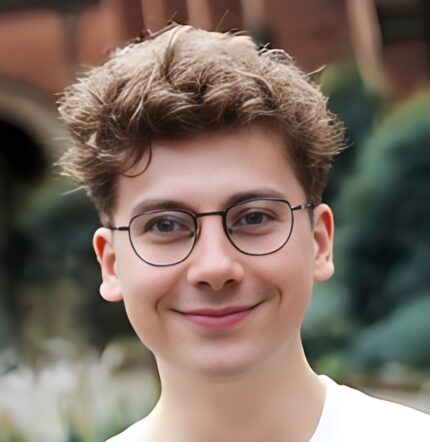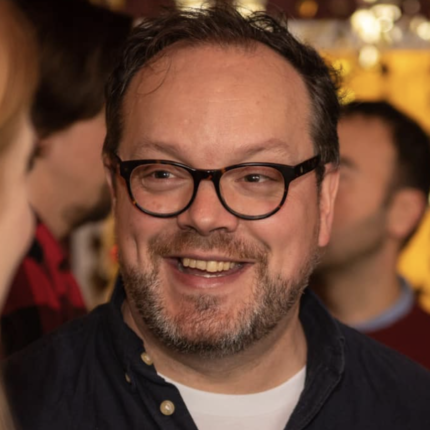It’s a 300km, 3 hour 37 minute drive from Prague to our next stop Wrocklaw, so when we were planning the trip we decided to make a stop off in the pretty Czech city of Mladá Boleslav, home to the Škoda Auto Company.
A toilet break wasn’t the only reason. Established in 2000 to address the company’s need for highly qualified professionals and bridge the gap between academic education and practical industry requirements, Škoda’s own Auto University provides specialised training in economics, management, and technical fields aligned with the automotive industry.
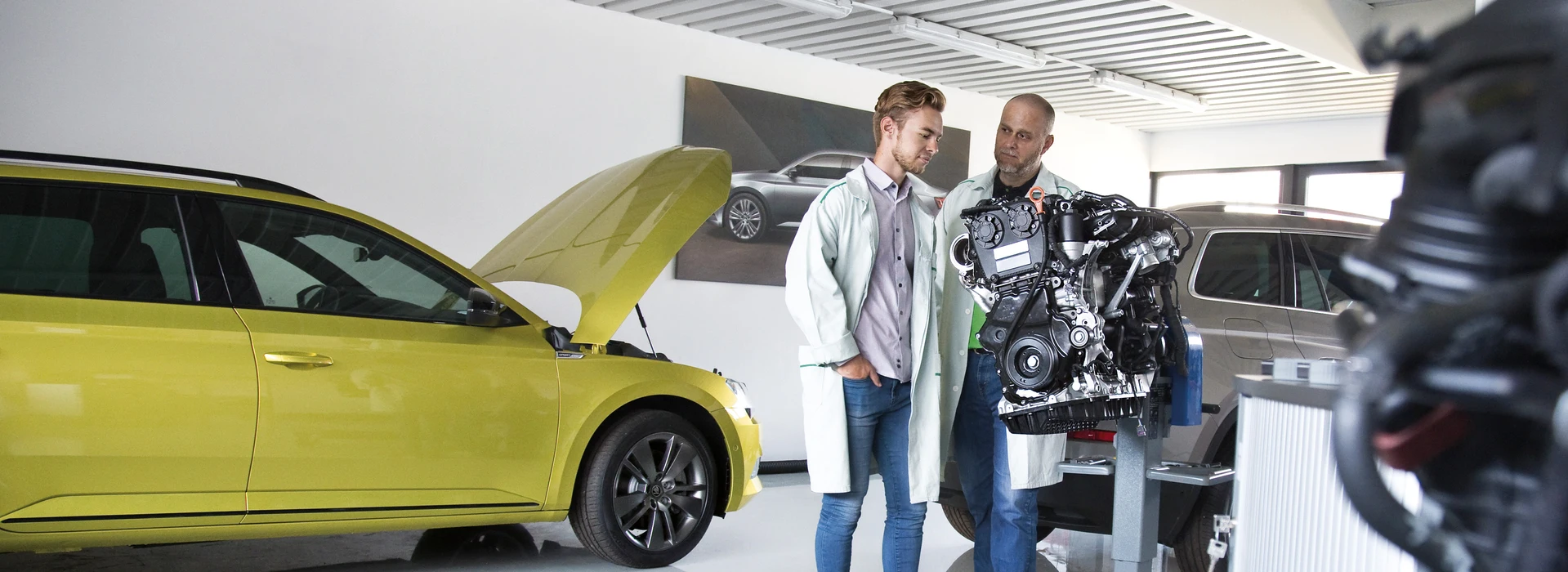
It’s a fascinating little place that is proudly focussed on employability and high-level technical skills – its STUDY&WORK scheme combines full-time study and part-time work in a field related to the degree – and it’s not just engineering, given industrial management, economics, logistics, HR and so on are all in the portfolio.
There’s also a tight integration with professional internships – Bachelor’s students do a 20-week mandatory placement in the 5th semester, Master’s students in Economics and Management can take a 6-week elective internship, and those in Industrial Management and Business Economics and Management Informatics complete a 6-week mandatory internship with professional guidance. And they’re paid.
Unlike in the rest of Czechia, fees aren’t free here – a Bachelor’s is 32,500 CZK/, €2,350/semester and a Follow-on Master’s 35,500 CZK/€2,550/semester – although students can access the same housing and food subsidies as other students, as well as points-based scholarships. And this being central Europe, students make up 4 of the 10 places on Senate.
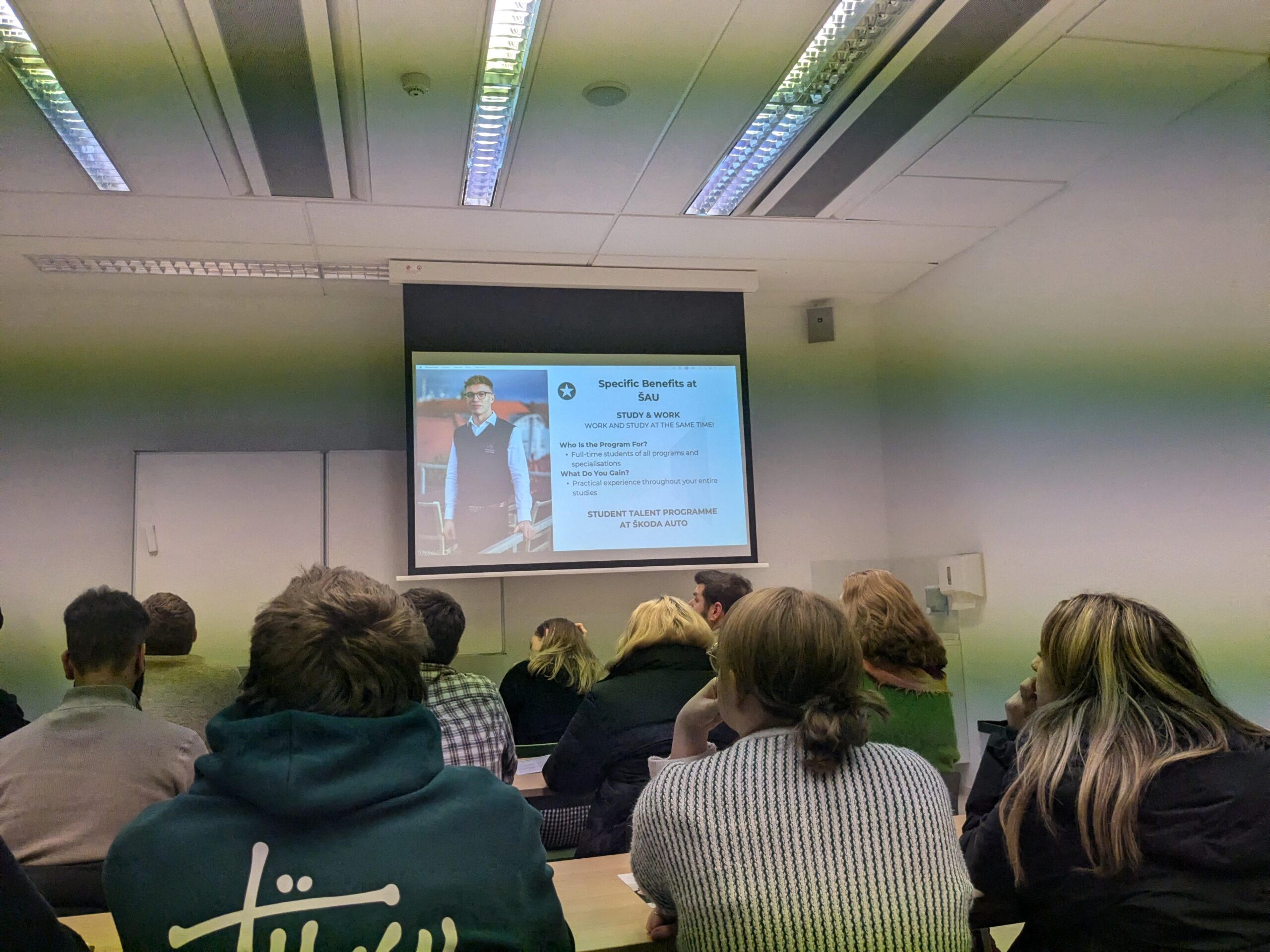
It’s very much the sort of industry-focussed provider that the last government intended with the Higher Education and Research Act, but it’s only really the tiny Dyson Institute that seems to have made it through the Office for Students’ complex bureaucracy – along with hundreds of much dodgier private providers doing business courses.
Home sweet gnome
Skoda is one of the universities we’ve been visiting on the Wonkhe SUs study tour to the Visegrad countries, where a group of student leaders and SU staff are on a five day tour of over 30 students’ unions, guilds, associations, and infrastructure organisations – learning about education, representation, student life and SUs from our friends in Central Europe.
After a long journey involving snoozing and nattering on the bus, we eventually made it into Poland’s fourth-largest city Wrocław – which in total is home to 8 universities and over 120,000 students.
Dotted all around the city are over 800 little bronze gnomes, the source of all sorts of freshers week orientation challenges – spotting them is a rite of passage for students in the city, team-based “gnome hunts” are a key way to build belonging, and university departments and student associations “adopt” gnomes and create legends around them.
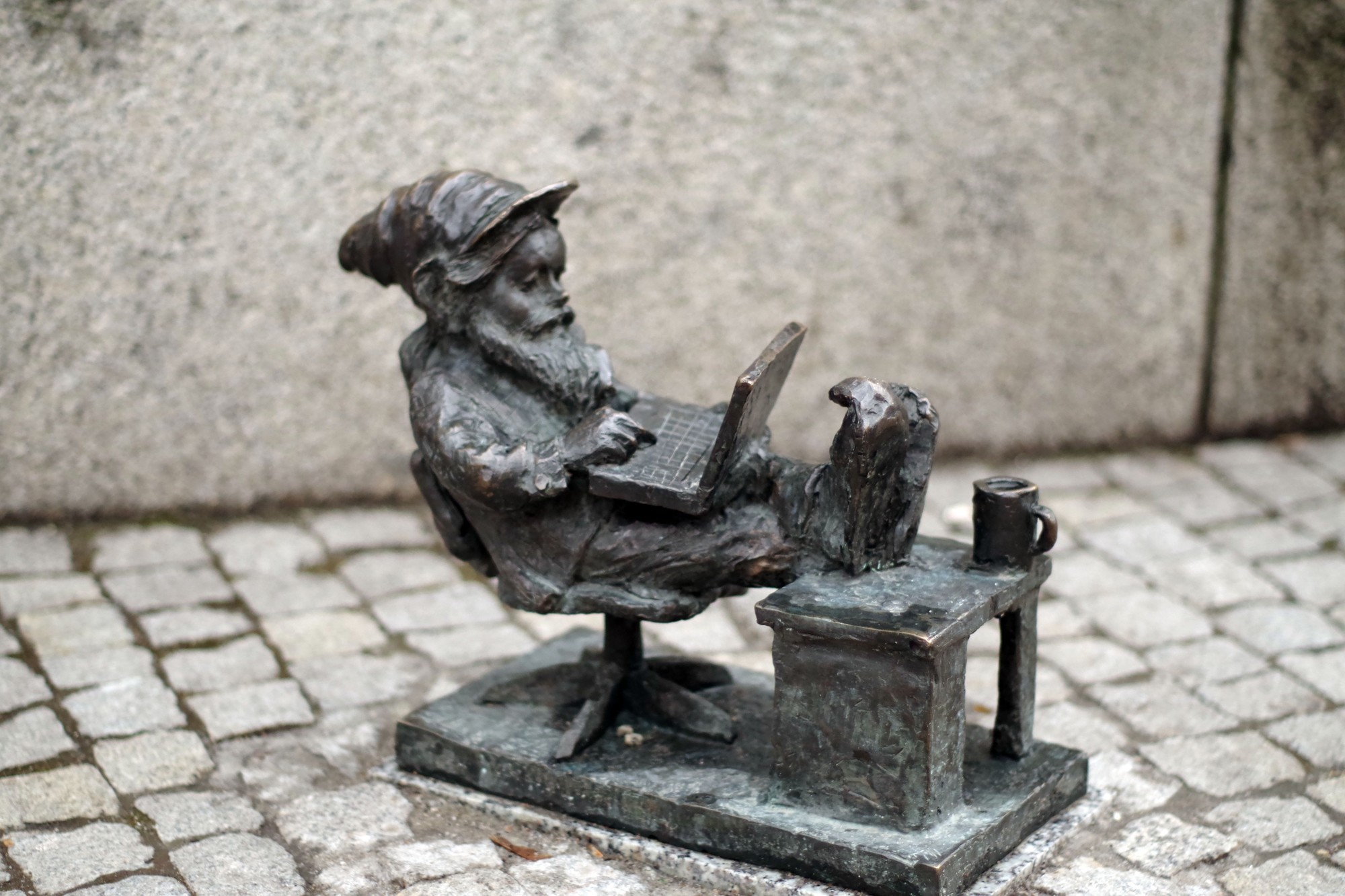
Naturally there’s a student activism aspect to them too. Under communism in the 1980s, a student-led underground group called the Orange Alternative used gnomes as a form of satire and protest against the oppressive regime.
Activists would paint gnomes over government propaganda or in place of graffiti that had been censored- and the gnomes became symbols of peaceful resistance, showing how humour could undermine authoritarianism. The first – Papa Krasnal – was installed in 2001 in honour of the movement, and the trend grew from there.
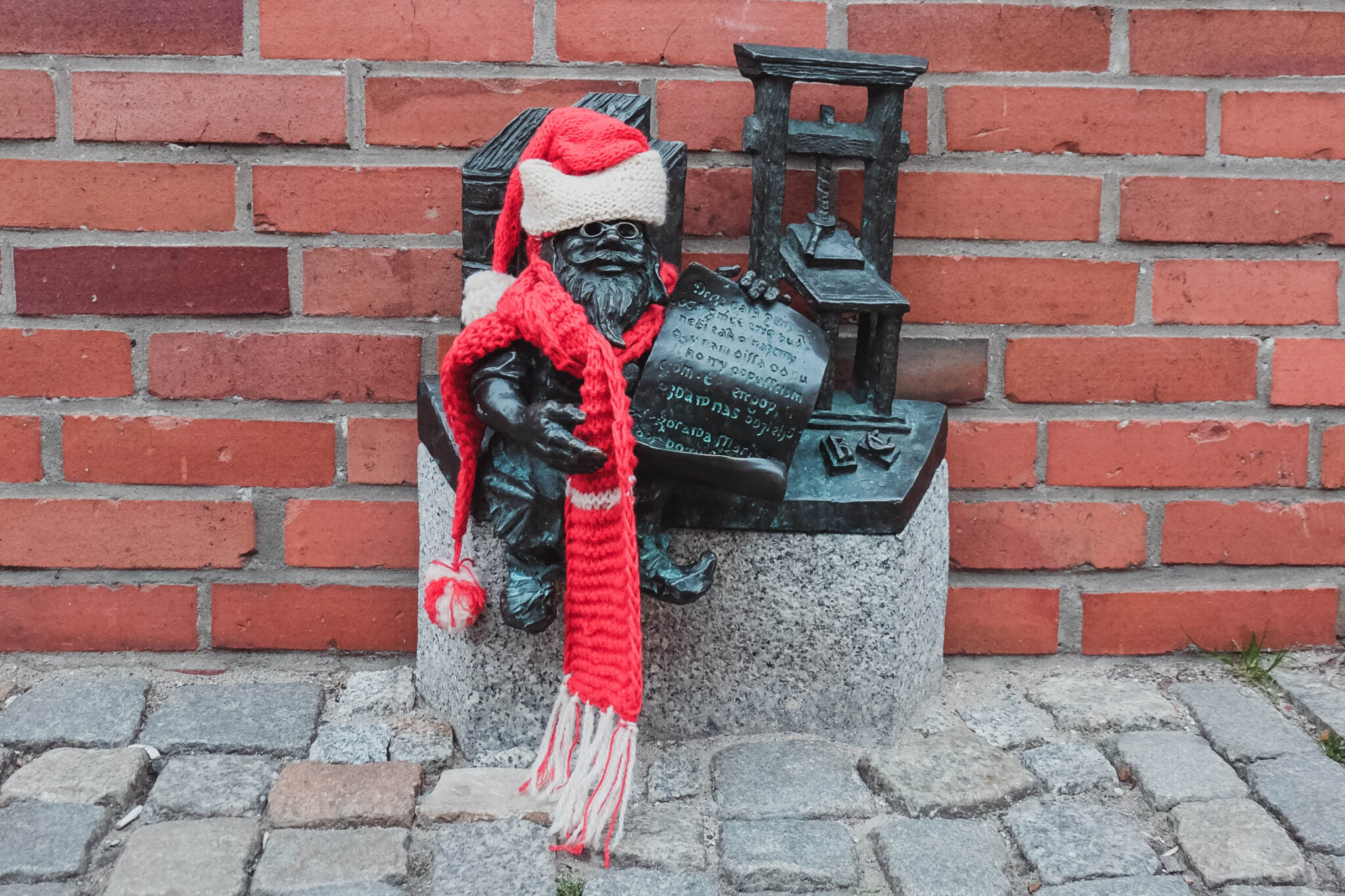
Pretty much every university building has its own. Krasnal Bibliotekarz (Librarian Gnome) is usually found near the university library, and is a favourite among students cramming for exams. Krasnal Wędrowiec (Traveler Gnome) is a fave of international students, representing adventure and exploration.
And gourmet gnome, found near canteens and the city’s food markets, symbolises students’ love for cheap and tasty eats. There’s even a Gnome Festival (Święto Krasnali) timed to align with the start of the academic year that each of the SUs takes part in featuring parades, treasure hunts, and artistic workshops – an important way for locals and students to build connections.
Put them on an Island
Just north of the old town is Wyspa Słodowa, or Malt Island, which transforms when the weather’s better into a hub of social, cultural, and recreational activities. One of the only places in the city where you drink outside, it’s where the city’s Juwenalia is held.
Derived from the Latin iuvenalia, referring to festivities honouring youth, Juwenalia can be traced back to the medieval period – with some sources suggesting it dates as far back as the 15th century, making it one of Europe’s oldest student festivals.
Every Polish student city has at least one. Typically held in late May or early June, it marks the unofficial beginning of summer and acts as a multi-day festival where students take part in cultural, artistic, and recreational activities. One of the festival’s highlights is the ceremonial handover of the city’s symbolic keys from the mayor to student representatives – a temporary “takeover” of the city by its student population – and there’s usually a parade where students don creative costumes related to their faculty.
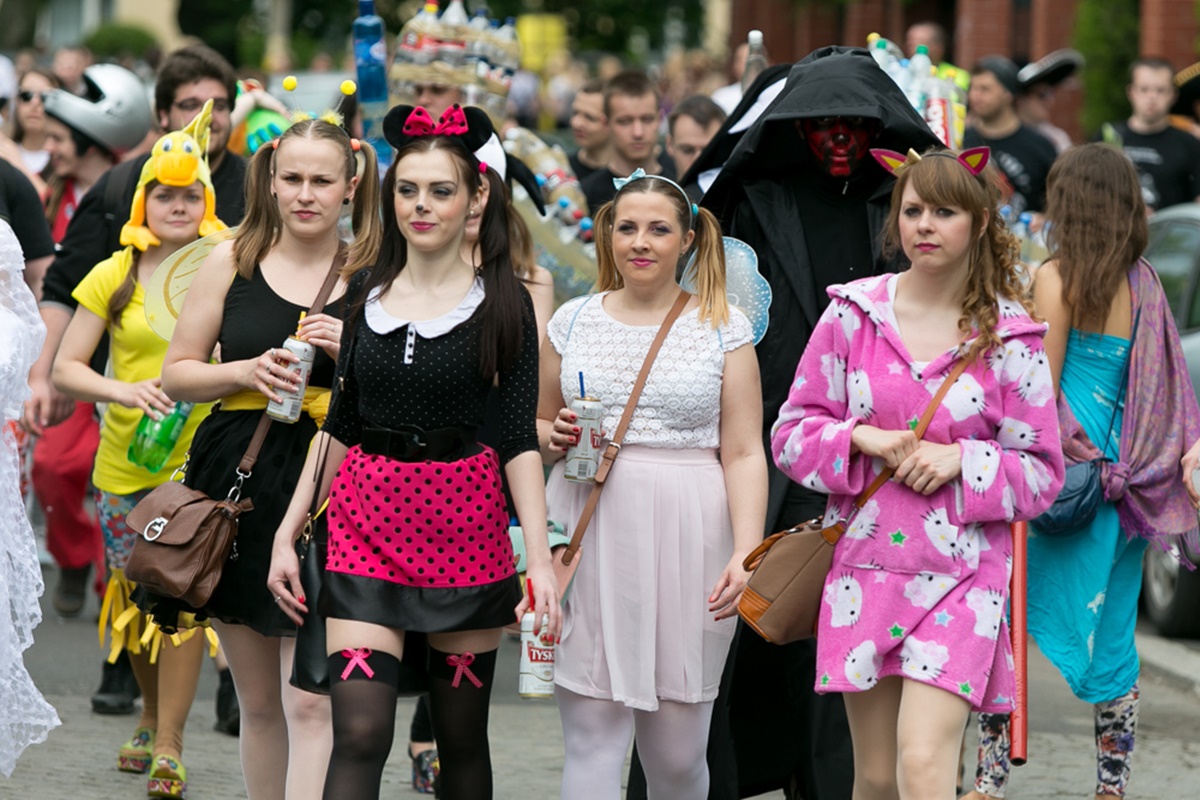
There’s also football tournaments, dance-offs, food stalls, games, challenges, stories by the bonfire, and on the big stage both top pop acts and performances by student choirs, theatre groups and dance ensembles – and naturally it’s all organised by a huge army of student volunteers keen to make the following year’s event even better.
And the Mayor loves it (note the bolding…)
I am proud that together with universities and students we can organize such a great event again. We are an academic city, focusing on universities and wonderful, talented students, for whom we want to create the best possible conditions for studying and later working in Wrocław. Juwenalia is a confirmation of the strength of cooperation and unity of our academic community. It is not only an opportunity to have fun, but also to show that Wrocław is a city open and supportive of young people. It is also for this reason that as a city we donated PLN 200,000 to organize this year’s Juwenalia.
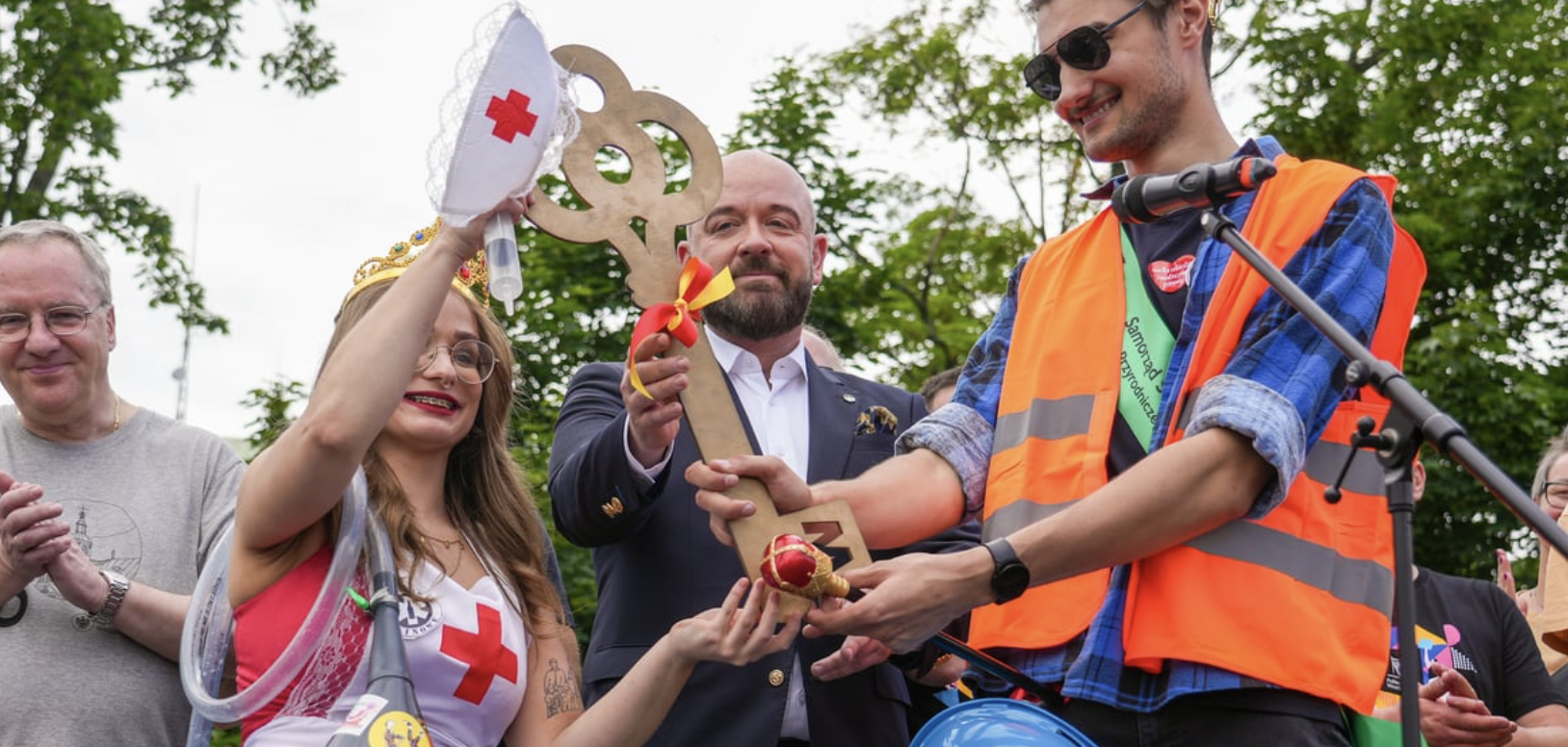
Running a city that likes to say it’s a “city with and for Wroclaw students”, his initiatives include:
- Awarding 164 grants to students with a total amount of nearly PLN 830,000 for the implementation of projects supporting their activity and development of entrepreneurship
- A Student Scholarship Programme supporting almost 900 student
- The Mayor of Wrocław Award for outstanding achievements in scientific research integrating the Wrocław scientific and artistic community
- The allocation of almost PLN 7 million for direct cooperation between student scientists and entrepreneurs operating in the city
Student rights and entitlements accrue to students in Poland once they have taken part in the inauguration ceremony – and in a system where students often graduate at different points, it’s this version of matriculation rather than graduation that has all the pomp and circumstance attached, with speeches from university officials, musical performances, and the symbolic passing of a key or torch to the new students.
That led to the Student Government of the University of Economics in Wrocław to create its own GradUEtion by combining a formal diploma ceremony with a fun, american-inspired celebration. Students wear traditional caps and gowns, culminating in a celebratory cap toss to symbolize the end of one chapter and the beginning of another. Maybe UK SUs should be thinking about stealing inspiration from the inauguration end of things.
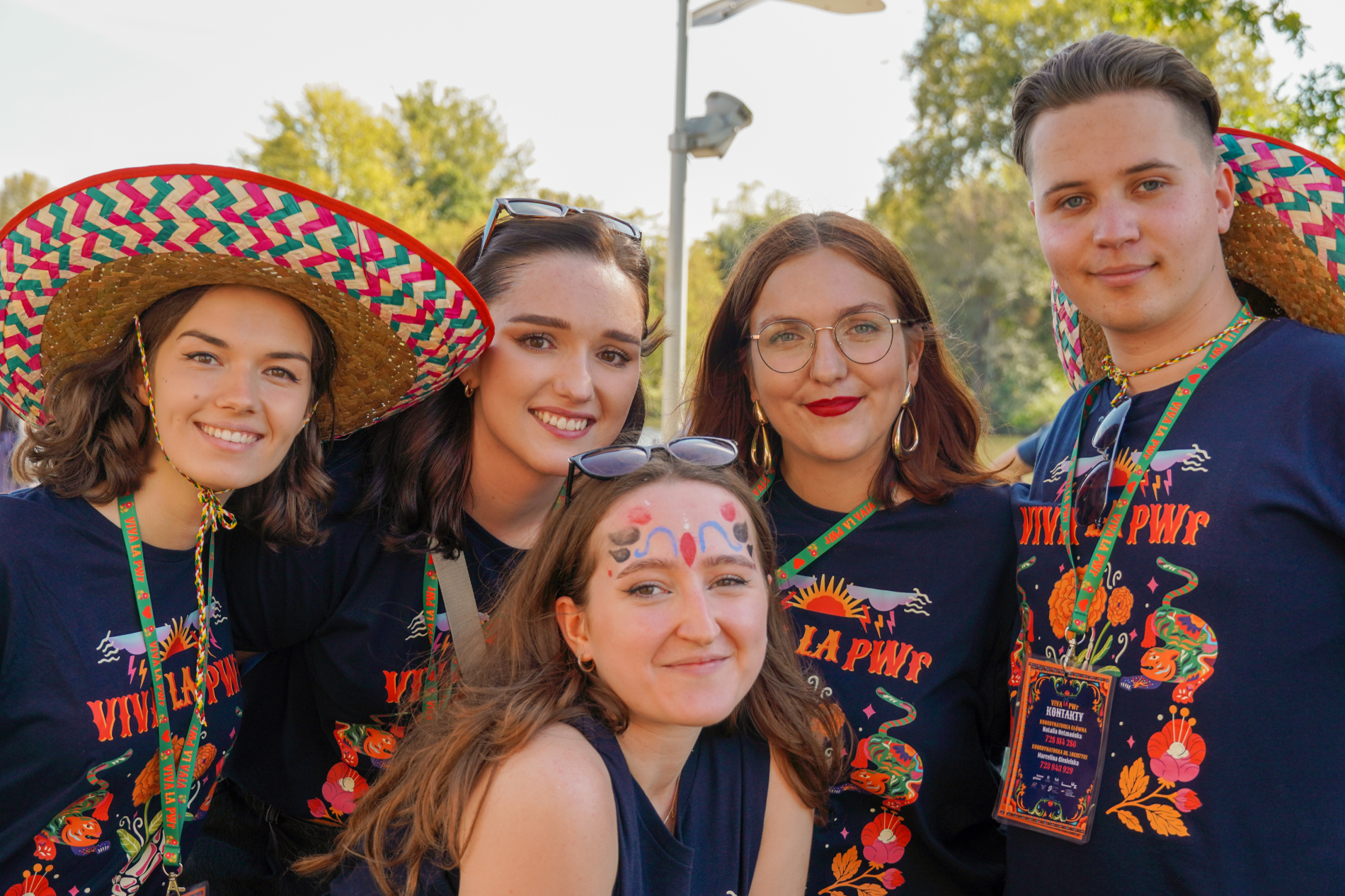
The SU’s Adapciak is a fascinating 8-day camp designed to help first-year students at the university get to know each other and enjoy their last bit of freedom before the academic year starts, packed with activities and social norming activities.
UElcome is a project that promotes the University of Economics in Wrocław to high school students across Poland, with volunteers coordinated by the SU visiting schools and engaging with prospective students directly. The Economic Knowledge Test is a nationwide competition in economics for students at major Polish economic universities modeled on a popular TV show, aiming to promote economic knowledge and skills among students.
Building bridges
And Economic Bridges is a brilliant project – a kind of domestic Erasmus exchange of students from 5 economics universities in Poland. It dates back to 2005, when, on the initiative of the SUs of the Warsaw School of Economics and the Wrocław University of Economics, a project was created which involves a four-day trip of lectures, workshops, meetings and case studies held by and for students along with prospective employers.
It’s especially beneficial for local commuter students, giving them the opportunity to see another city and experience how students study and live at other universities first-hand with a view to driving improvements back in Wrocklaw.
It’s also worth having a little shufty at the SU’s officer structure. As well as a President and VPs for strategy, projects and PR, there are board members for HR, finance, promotion and external contacts – all roles that might expect staff to fill back in the UK.
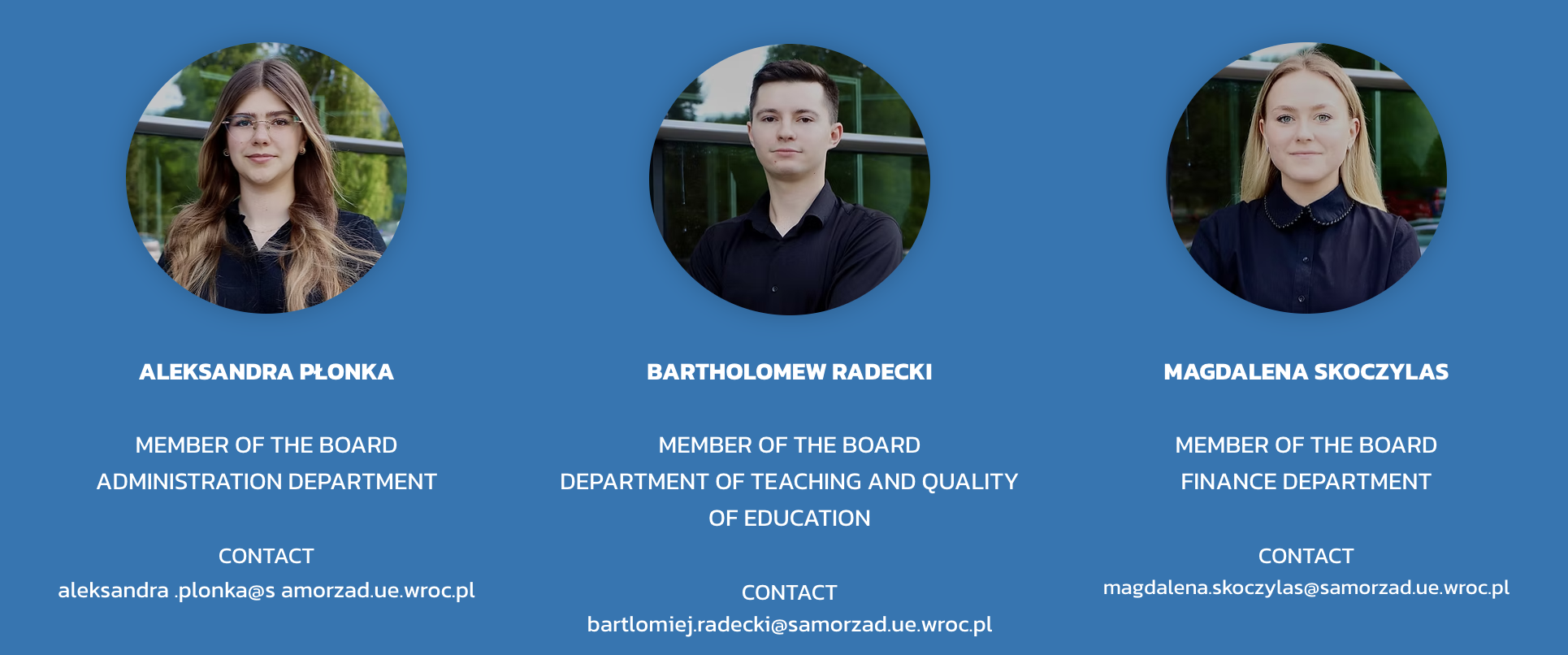
There are advantages and disadvantages to that approach – here in Wrocklaw each of those officers has a team of helpers keen to gain experience in key areas of work that they know will be important when trying to access the labour market later. It also very much means that the SU feels student-led – even for those less interested in representation and politics – and you can’t fault their TikTok.
The particularly telling comment from the SU’s talented officer team was that while there’s a lot of applications for lower-level roles in their projects and services, they sometimes struggle to fill management and coordinator positions. We can tend to assume that students won’t do the basics, and that a lack of interest in formal positions must mean that students won’t do anything else either – not so here in Wrocklaw.
Culture clubbing
Before we left the city, we popped into the Student Culture Zone at Wrocław’s University of Science and Technology – a large multi-purpose student building that is part-restaurant, part concert hall, part-social learning centre and part-dedicated to providing facilities for the hosting of events and activities staged by students.
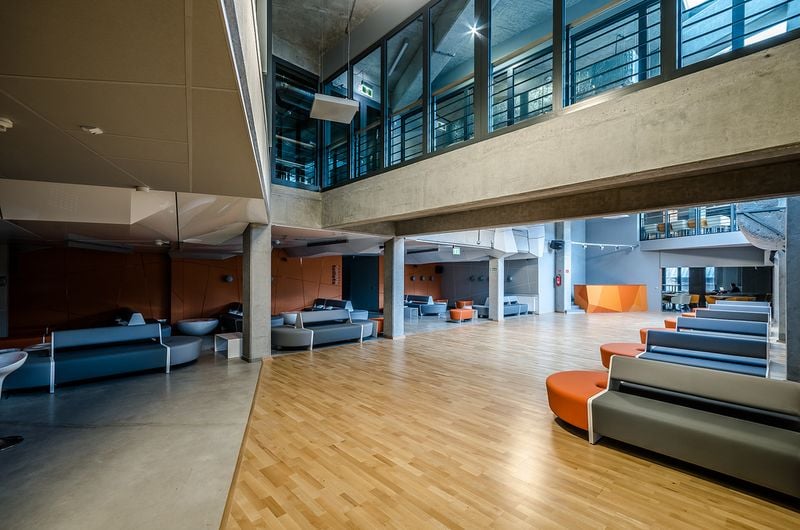
Its biggest regular night, that takes over the entire complex, is its Board Games event – having begged, borrowed or stolen sets from students and alumni, one of its cupboards is full of them – and now every week for a full six hours or so students from each of the student associations host a table and invite students to take part in pairs so that they meet others.
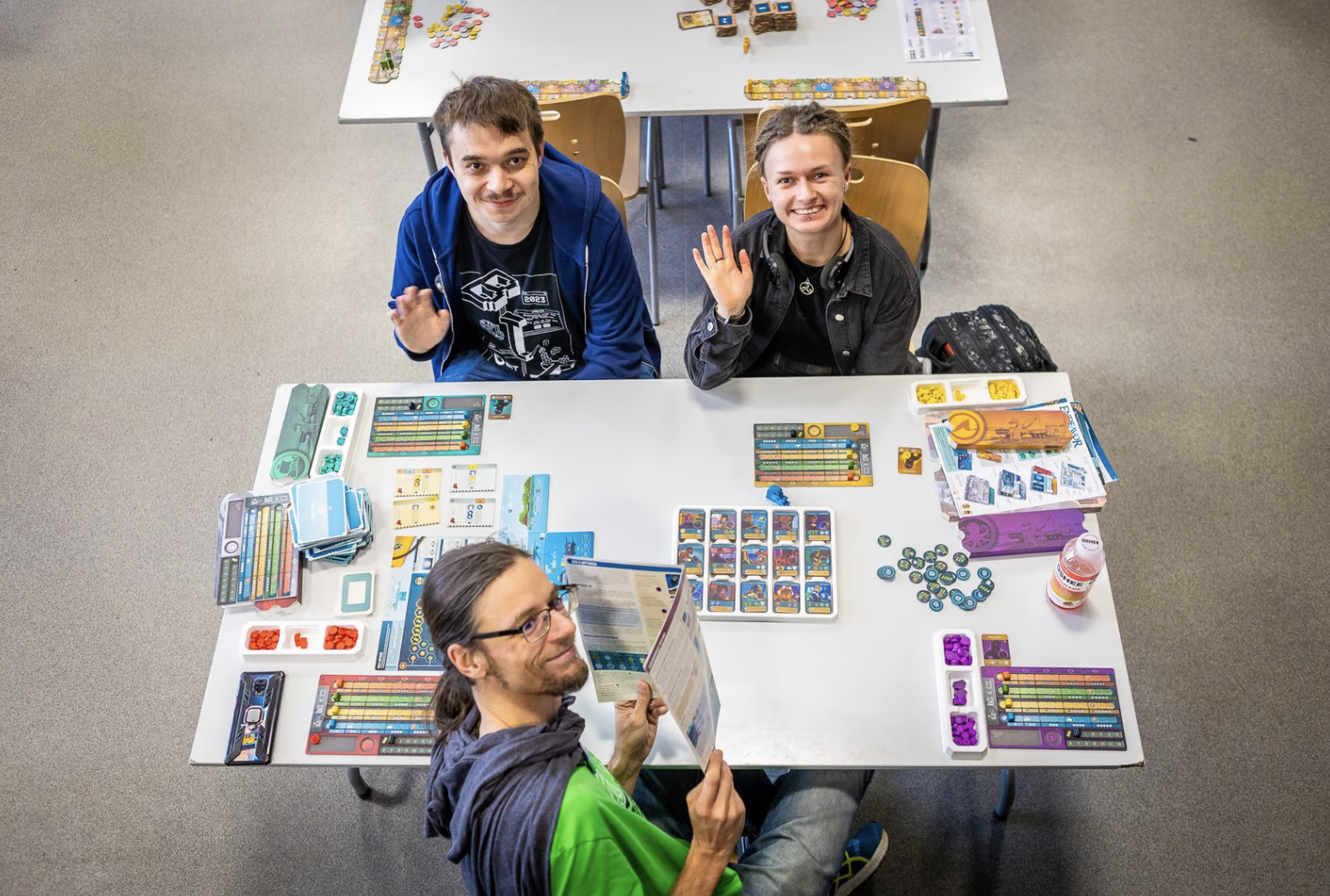
It seems the UK is not the only country where some students want something other than loud music and alcohol.
The creativity in its events programme is driven by a large “Culture and Projects Committee” where “the biggest student projects are created”, and ideas for students’ cultural life take on new meaning:
Members of this committee have the opportunity to learn the secrets of organizing events such as balls, lectures, theme days or field games from scratch, and can also implement their own ideas for events, such as “Among PWr” or board game evenings. We are also responsible for such iconic events as the PWr Student Camp, Zero Days and the initiation ceremony. Cooperation with other organizations allows us to implement our ideas at the highest level.
We are looking for people who want to expand their skills in team building, leadership, time management, planning and task delegation, but above all, people who are committed and open to action!
They don’t struggle to recruit members.
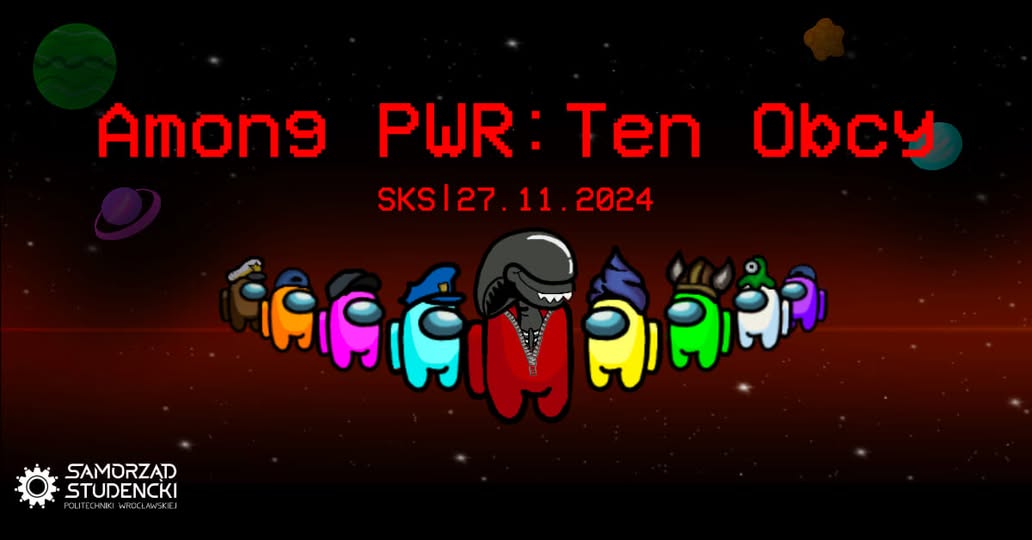
Its other award winning event that is held a few times a year is literally a human version of the game “Among Us”, that award coming from the Technical Universities Forum.
More on that tomorrow, suffice to say that the projects focus of so many of the student activities programmes you see in Poland mean that the SU at WUST’s “Habitat Now Science Club” were recognized for the design and supervision of a new cafe in the city that employs people with disabilities, and the PWR Racing Team won a gong for electric racing car with autonomous driving systems RT13e created by students.
We’re off to Katowice now where we’re hoping to bump into a famous Polish film director in their film school cum cinema. Or at least Mack is.

